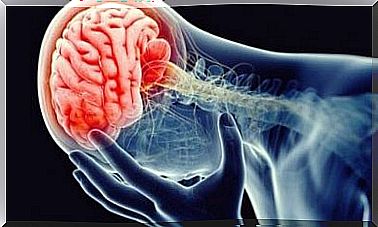What Is Obsessive-compulsive Disorder?

Julio is a very successful man at work. He says that from a young age he has liked to do things properly and that he would spend hour after hour making sure that his assignments and homework were “good enough.” He defines himself as organized, orderly and a perfectionist person.
In his own words: either things will be done perfectly, otherwise it will not be good enough at all. And then you have to return to it. He likes details and that things are in harmony, a routine and persistence. He thinks his way of doing things is what has led to the success he is experiencing in his working life now, although he still does not think this is enough.
What’s wrong with Julio?
From this point of view, one might think that Julio – a successful man, viewed very positively at work, hardworking, organized – has no problems. But the reality is that Julio’s personality creates gaps in other parts of his life. Julio suffers from what is known as an obsessive-compulsive disorder.
A person with this type of personality is defined by their elevated perfectionism and their need to control situations. Being a perfectionist does not mean that you want and make an effort to make things go as well as possible. This would be normal and a good thing. Instead , a perfectionist is someone who demands that everything they do must be perfect. The problem is that perfection does not exist, so the person may spend several hours and even days doing something another person would spend much less time on or would tend to drop or procrastinate for fear of not doing it perfectly.
Their longing for perfection makes them never happy with their results because they always think they can do better. And as a consequence, it produces a high level of anxiety in them. It makes them suffer and not enjoy what they have achieved.
The mindset these people have is called polarized thoughts. So that means things are black or white, good or bad. Either you are perfect or you are a mistake. And since they never achieve perfection, despite their success, they end up seeing themselves as mistakes.
When the craving is perfectionism becomes utterly destructive
People with this personality are often dedicated exclusively to their work. They never take vacations even if their boss wants them to. Work is their priority and they often take it home every day without relaxing or doing other activities. Obviously and because of this behavior , their social and romantic relationships disappear as leisure activities are no longer in their plans and if they participate in them, they feel uncomfortable and as if they are wasting time.
Relationships with colleagues are also troublesome, as they are unable to delegate work to others or accept outside help because they do not believe others are good enough at it.
As can be deduced from these characteristics, the central belief for these people is the need to make things perfect and the intense fear and anxiety of failing or of making mistakes.
What can Julio do?
It is true that personality disorders are difficult to change. But psychotherapy combined with meditation could help these patients.
First, it would be necessary to work on the erroneous beliefs about perfectionism and control. The goal of these people is to learn that perfection is an unreal concept. It does not exist, and committing oneself to achieving something that does not exist will only bring anxiety and frustration. Which makes us suffer, be aggressive and hostile or distance ourselves from our surroundings and isolate ourselves emotionally.
The person has to let himself make mistakes. Making mistakes is human, and since we are human, we can and should make mistakes. Making mistakes allows us to learn and grow in every aspect of our lives. It means nothing more than that. Seeing a mistake as an absolute mistake is also unreal. And therefore we should help the person to change that perception and be more rational.
Help can come from outside
Learning to enjoy social conditions and leisure activities is also essential. These people feel that enjoying leisure time and engaging in non-work-related activities is unnecessary. But the truth is that everyone in the world needs to relax, unwind and absorb energy in order to perform better.
When they are the people they are, they also feel physically and mentally exhausted. Therefore, we should work on these ideas with them so that they understand that there is time for it all and that relaxation is necessary for physical and mental well-being.
People with this personality should ask themselves, “What is the worst thing that could happen to me if I failed in this task?” Thinking about it can help us realize that many times we shape thoughts and images in our minds of disasters and dramas that ultimately do not exist at all.
The anxious brain is always thinking that something worse will happen than what is actually happening. It causes unnecessary suffering, making it so much harder to solve problems.
Image: http://amaltiempobuenapsique.com/2012/10/01/combate-el-perfeccionismo/









